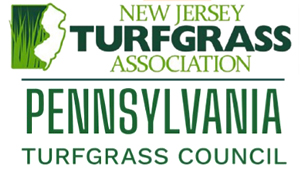In the past three decades, so many newly constructed residential developments have emerged, leading to an escalation in the volume of wastewater requiring treatment by wastewater treatment facilities. These facilities play a crucial role in separating waste materials from clean water. Following this separation process, there are two available options: either transporting the waste to landfills or repurposing it as a safe and nutrient-rich fertilizer for soil enhancement. The recycling procedure further separates these materials into two grades, A and B. Grade A is used for fertilization purposes, while Grade B is commonly subjected to incineration. Additionally, manure from farm animals is added to this recycling process which further enriches the soil with valuable nutrients. Farms, golf courses, and residential properties all benefit from the use of these products by maintaining and preserving nutrient-rich soil and promoting the growth of robust and healthy plants.
These products consists of organic based nitrogen and many other essential nutrients and are all federally and state approved. Triforce is a blend of beneficial prebiotics, probiotics, and bacteria. While synthetic fertilizers effectively nourish plants, their drawback lies in their one-dimensional/single purpose approach because they fail to have any beneficial impact on soil biology.
Consider Triforce as a soil-friendly yogurt, replenishing the depleted living organisms in the soil. Palio, a prebiotic solution, consists of humic acid and hemic foam compounds. Biogrowth aids in enhancing the plant’s utilization of key nutrients such as nitrogen, phosphorus, calcium, magnesium, zinc, and boron, which play a vital role in fortifying lawns against diseases and minimizing the need for additional nutrients to sustain overall health. This mechanism operates akin to a turbocharger, attaching to cell mitochondria to escalate respiration and chlorophyll production, thereby channeling energy reserves towards root development. Colony Complete comprises a diverse set of living and active soil bacteria, encompassing 11 varieties and 22 strains renowned for their high functionality. Notably, bacillus bacteria possess the capability to metabolize nitrogen and various nutrients, rendering them more accessible to plants. Moreover, certain bacteria exhibit the ability to decompose thatch, a detrimental factor to the well-being of lawns.
People often ask about the use of pesticides in organic agriculture. The difference between conventional and organic farming arises from the sources from which these pesticides are derived. Some derived form of pesticides are still widely used and relied on in organic farming. Organic farming uses a lesser rate of pesticides, but requires more frequent applications. So to say that organic farming does not use any pesticides is not a true fact. Remember, cyanide and arsenic are naturally occurring. Most households have pesticides that homeowners are not aware of, or think of as a pesticide; for instance, bleach is a pesticide. Lawn care cannot be solely certified organic, but skilled and knowledgeable applicators only use methods to keep our pesticide and synthetic fertilizer footprint as low as possible. Conventional or hybrid organic is a choice, like driving a Suburban or a Prius.



